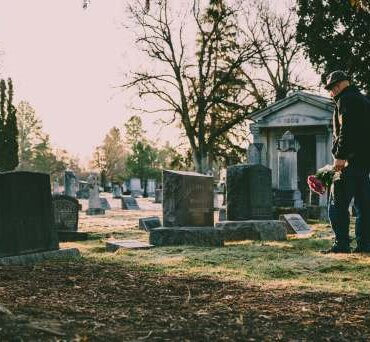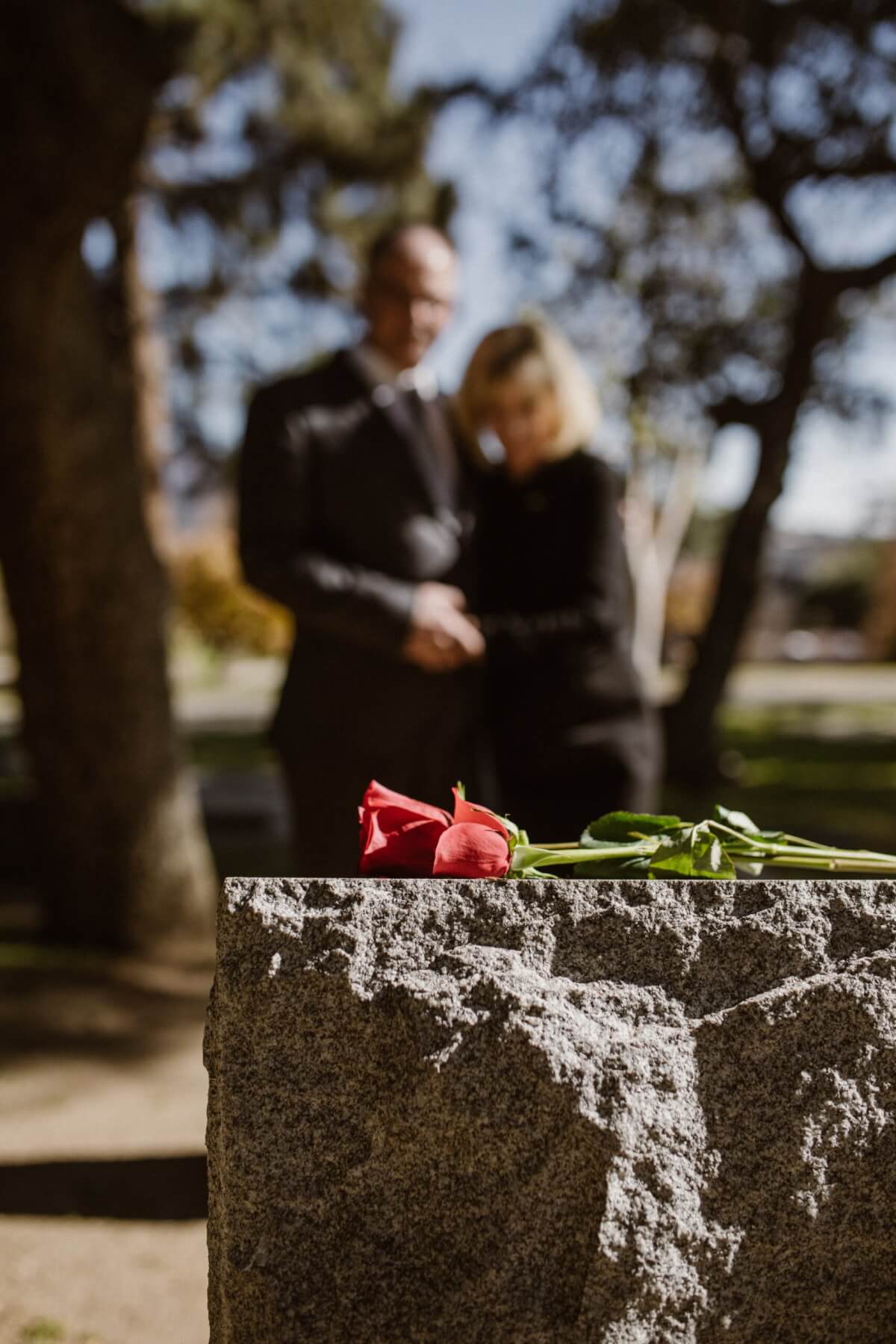
Grieving at cemetery. Photo: Brett Sayles, pixels.com
Being human, means that with life, comes the inevitability of death.
Being no respecter of persons, it comes for everyone. Some won’t necessarily relish engagement with this subject, hence all kinds of euphemisms are politely preferred, instead of that ‘D’ word. I can think of euphemisms (softer terms of expression), that blunt the reality of someone dying…’passed’, or ‘passed away’, ‘resting in peace’, ‘taken their last breath’, ‘gone to a better place,’ ‘departed’ and many others.

Murray Smith
Alternatively, I’ve often heard people ‘scoot’ around the death topic with uneasy levity using words that are probably attempts to remove the subject’s inherent ‘sting’ with expressions like ‘given up the ghost’, or ‘gone belly-up’, ‘kicked the bucket’, ‘snuffed it’, ‘met his Maker’ and a bizarre one I’ve heard a few times, ‘popped his clogs.’
While it is unhealthy to carry a pre-occupation with death, it’s equally unhealthy to live in avoidance mode as though it were irrelevant to our existence. It’s appropriate to contemplate death and have it in our reckoning, without it being at the forefront of our thinking.
I’ve journeyed frequently with families planning for the imminent death of a loved one, or dealing with loss following a loved one dying. Unexpected deaths are most difficult since the shock and sense of loss is amplified with the suddenness and lack of opportunity for saying ‘goodbyes.’ At least with advance warning, a certain level of adjusting is possible, as well as, importantly, much needed words can be offered and received.
Listening to eulogies at funerals, I often hope the wonderful tributes and honouring words of appreciation being offered ‘posthumously,’ were expressed to the deceased in their lifetime…when doubtless it would have meant so much.
I knew a lady who had a terminal condition yet believed she was going to get well despite losing ground daily. She would not tolerate her family engaging in ‘death talk’ and that was hurting everyone badly. The family wanted to talk, yet any conversation about dying and a funeral, was forbidden since she saw it as negative. Fortunately after gentle conversation and reasoning, she capitulated, giving the family precious time to offer words they needed to express. Although she didn’t receive a physical healing, relationships were restored as healing words balmed, uplifted and brought understanding.
An important question to conclude: How should you be ready for death before it comes? Being a ‘faith column’, here’s a faith perspective.
My father in law felt unprepared and anxious as he lay dying. Seeking assurance about where he stood with God and what lay ahead, he’d called for a priest. My wife visited at the perfect time to join the conversation. She related joyfully how her own years of doubt and uncertainty were replaced in an instant with unshakeable peace and assurance. She shared a simple, earnest prayer of faith anyone can pray to accept Christ as their saviour, to receive forgiveness and eternal life – with that, came freedom from fears and doubts.
So, death is not the end… for a believer it’s a new beginning. Shedding mortality, means embracing a life of immortality in heaven.

Grieving. Photo: RDNE Stock, Pexels.com








